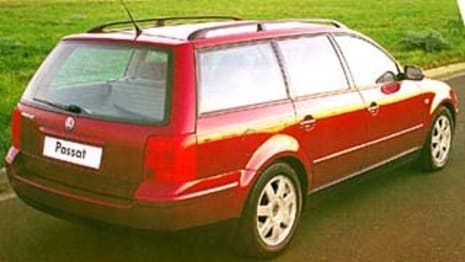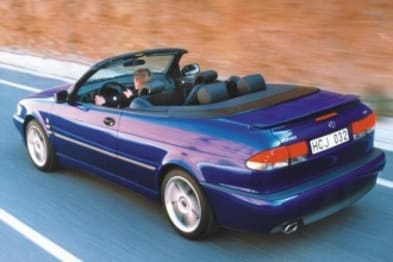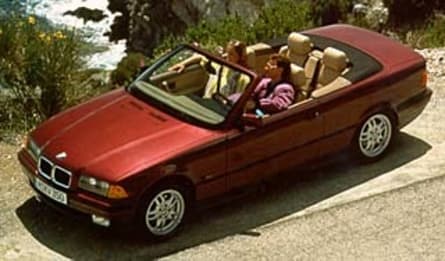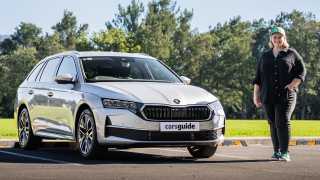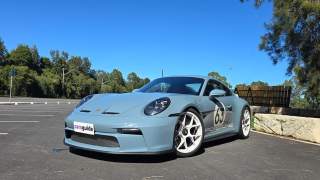
Used Volkswagen Passat review: 1998-2002
- Volkswagen Passat
- Volkswagen Passat 2002
- Volkswagen Passat 2001
- Volkswagen Passat 2000
- Volkswagen Passat 1999
- Volkswagen Passat 1998
- Volkswagen Passat Reviews
- Volkswagen Reviews
- Volkswagen Sedan Range
- Sedan
- Volkswagen
- Used Car Reviews
- Buying tips
When you’re known for building cars that everyone can afford and little else it can be hard to shed that working class image when it inevitably fades and needs renewing. So entrenched was the Beetle in folklore that it was very difficult for Volkswagen to replace it when it clearly needed to do so in the 1970s. It has taken a long time, but the company has emerged from the shadow of the Beetle and now has a range of well-built cars that appeal to a broad range of buyers.
The Passat was a key model in the range as the company morphed into a modern carmaker with models to suit all needs and desires. It was the model that promoted it into the same league as the grand German makes like BMW and Mercedes-Benz. The Passat was the prestige car created to compete with the likes of the BMW 3-Series and ’Benz C-Class.
MODEL WATCH
Solid and sound are words that spring to mind when Volkswagen is mentioned in conversation. Rarely do words like exciting, thrilling and sexy crop up. The company has been building soundly engineered, solidly built and reliable cars since its very beginning in the ashes of World War 2. The Beetle was all of that, and while it had a quirky sort of charm, it could never be described as exciting.
To some extent those same fundamentals are still there in today’s VWs, they are the pillars on which VWs are still built today. They apply to the Polo as much as they do to the Golf, and the Passat, Toureg of other models further up the food chain.
While they are admirable qualities in any car they can be somewhat constricting if they are first and foremost in the minds of buyers. If VW suffers anything it’s perhaps it’s a lack of pizzazz. The Passat is a very competent car. It’s beautifully engineered, impeccably built, drives wonderfully well, but it doesn’t turn heads.
Drive a BMW 3-Series and people notice, same with a ’Benz C-Class, but no one notices you when you drive a Passat. Perhaps passé might have been a better choice of name. The Passat wasn’t the fastest car in the class, it wasn’t the fleetest of foot getting from point to point, but it was competent. A well-rounded car that did everything well without excelling in anything in particular.
Weighing in at over 1500 kg the Passat was no lightweight, a fact that came through loud and clear when you depressed the right pedal. It was best described as enthusiastic and willing, never thrilling. The front-wheel drive Passat steered well, gripped reassuringly and faithfully responded to requests to change direction. Its attitude was generally one of calm understeer.
The Passat’s looks were reserved; there was none of the BMW bravado from the Wolfsburg company. Still, it looked pleasantly attractive, even if no one took much notice of it when you pulled into your driveway.
There were three double overhead camshaft engines offered to begin with: a 92 kW/173 Nm 1.8-litre, a 110 kW/210 Nm turbocharged 1.8-litre and a 142 kW/280 Nm 2.8-litre V6. The gearbox choices were a five-speed manual or a four-speed auto. All Passats were well equipped, as you would expect a premier prestige model to be.
The base 1.8-litre sedan came standard with power windows and mirrors, an immobiliser, central locking, auto air, cloth trim, eight-speaker sound with CD, and wood grain highlights. Move on up the line to the turbo and you got alloys, a trip computer, leather steering wheel and sports trim. Then there was the V6, a more luxury-focused model that had larger alloys, a six-stacker CD and more fake wood.
IN THE SHOP
Good build quality means little goes wrong on a regular basis; the problems that the Passat suffers are usually one-offs rather than persistent flaws that afflict a lot of cars. Check for a service record to make sure the engine oil has been changed regularly. The fours have a cam timing belt, which needs changing around 100,000 km, but the V6 has a chain that doesn’t require servicing.
IN A CRASH
While the Passat chassis wasn’t particularly sporting it was very competent and well capable to responding to an emergency situation. It had the added safety of ABS brakes standard across the range. The driver and front seat passenger had front airbags, and the V6 had side airbags as well. It was given five stars in the last used car safety survey.
AT THE PUMP
The 1.8-litre will do 9-10.0 L/100 km around town, and 7-8 L/100 km on the open road. The V6 is thirstier and will get 9.5-11.5 L/100 km around town, and 8-8.5 L/100 km on the highway.
LOOK FOR
• Pleasant styling
• Competent on road
• Modest performance
• Solid build quality
• No badge snobbery
THE BOTTOM LINE
• A solid and reliable car that does everything well, but don’t expect to impress the neighbors.
RATING
• 77/100
Pricing
| Year | Price From | Price To |
|---|---|---|
| 2002 | $4,070 | $8,250 |
| 2001 | $4,070 | $8,250 |
| 2000 | $3,850 | $8,030 |
| 1999 | $3,850 | $7,480 |
| 1998 | $3,850 | $7,150 |
Pricing guides
Range and Specs
| Vehicle | Specs | Price* | |
|---|---|---|---|
| 1.8 20V | 1.8L, PULP, 5 SP MAN | $3,850 – 5,720 | 1998 Volkswagen Passat 1998 1.8 20V Pricing and Specs |
| Variant 2.8 V6 | 2.8L, PULP, 5 SP AUTO | $4,840 – 7,150 | 1998 Volkswagen Passat 1998 Variant 2.8 V6 Pricing and Specs |
| 1.8 20V 60TH Anniv | 1.8L, PULP, 5 SP MAN | $3,850 – 5,720 | 1998 Volkswagen Passat 1998 1.8 20V 60TH Anniv Pricing and Specs |
| 1.8 20V Turbo 60TH Anniv | 1.8L, PULP, 5 SP MAN | $4,510 – 6,710 | 1998 Volkswagen Passat 1998 1.8 20V Turbo 60TH Anniv Pricing and Specs |
$4,070
Lowest price, based on third party pricing data












